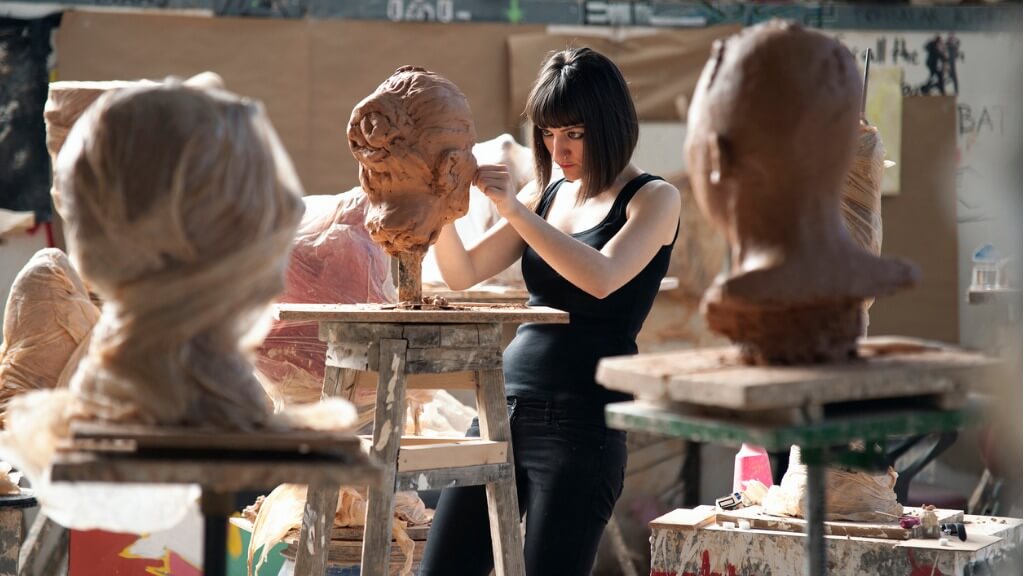How To Turn Your Passion Into A Business
Make the transition from freelancer to successful, growing business.

A lot of people make the transition from freelancer to business owner seamlessly, taking their passion and building a structure around it.
Starting a ‘proper’ business happens when you realise, “I can’t take on any more due to lack of capacity and I don’t want the standard of work to be affected.” Or it’s when you decide to establish something because you think it has real potential to grow into something special that has longevity.
I worked as a freelance designer for more than eight years, doing the thing I loved best, before founding a multidisciplinary creative studio – Satore Studio. There came a point where so much work was coming my way that I needed to decide either to continue working on my own or build a business, together with the responsibilities that comes with doing that.
For me, turning a creative passion into a business is about understanding that you genuinely want to take responsibility for people – to help support their career development and their future. It’s also about creating a culture and entity that everyone buys into, the heart and soul of the business.
That heart and soul informs everything we do at Satore - from the way we bring in new projects, secure funding, develop our people and think about business growth.
It's about making friends, not networking
Because culture is so key to us, we needed an approach to business development that fits with our values. Networking for the sake of networking has never been right for us. We prefer to focus on the human element; getting to know someone, sharing something and building on a friendship.
This way there’s a far better chance of developing a rounded relationship that delivers business and more.
Think of it this way - who are you most likely to want to work with: the person who slipped you their business card over a five-minute forced conversation, or the one who took an active interest in what you had to say and gave you their undivided attention?
Some people are great at talking and regularly communicate with others, but may still not be very good networkers. When it comes to trade shows, it’s best for you to view any networking opportunity as a way to form a friendship with people in the same industry.
It’s about finding like-minded people, and those in the room who can challenge your understanding of your industry. Approaching networking in this way, finding people who are just as passionate as you, leads to collaborations and new ideas that challenge and freshen your thinking.
With long-term relationships of this kind, people will trust you to deliver, even if it’s something that has never been done before. They know you and your values personally, so they understand how you take pride in your work and deliver to the highest standard. It’s more intimate than a cold ‘here’s my portfolio’ approach.
Surround yourself with people who can support your growth
When you’re a freelancer and a certain amount of work starts to come in, you may well begin bringing people in to help. Then you realise you need to have more structure, which means a bigger team and even more challenges.
Finding people who share the same passion won’t be the issue, but you will need to treat them as relationships waiting to develop. It enables you to deliver a better service because then you’ll know their expectations when you encounter those difficult work moments together.
Know when you need to source funding
It takes time to find the right people, and to create a coherent business plan that excites people and makes them want to be part of the journey. But you must do this before you even start to consider taking on funding.
Most businesses that develop out of a freelancer or a small group usually start out being 100% self-funded. However, leveraging funding is important when you need to scale. Fundraising can take many forms, but investment needs to focus on business needs and growth with a focused eye on the future.
Satore, for example, has restructured and recently launched Satore Tech to focus on R&D activities that meet the demands of a constantly changing world. Starting a new venture from an established company means that everyone expects it to hit the ground running.
Patience is essential
You might want everything overnight, winning all the contracts you pitch for because you have talented people that should be instantly recognised. In truth, no matter how talented and brilliant you think you and your team are, patience is vital.
Success actually comes from being aware of your challenges and what you can learn from tackling them head on. Put things into perspective and stop to consider how much progress you have made in the last few years. Yet at the same time you should never stop learning.
Learn your craft, understand the nitty-gritty detail and meet the right people (as friends) who can help you acquire the tools that will help make you better at what you do.
Read a lot
Read inside and outside your field. Books looking beyond your industry can help you understand how other people tackle business and life challenges.
Particularly in a creative business, finding inspiration is paramount to successfully delivering concepts – and you can come at it from different angles.
Over the years I’ve learnt so much from studying Jose Mourinho; understanding how he deals with teams, players, superstars and the media has really helped me to run Satore in a completely different way.
I think the way he handles it all is incredible; he would’ve been an amazing brand CEO for the likes of Apple or Coca-Cola or Microsoft.
Remember – surround yourself by what you know and what you don’t know and remember to never stop learning. After all, no one can claim to know everything, and you’ll be amazed at what you can learn from the most disparate and unexpected sources.
Tupac Martir is founder and creative director at Satore Studio.
Thanks for signing up to Minutehack alerts.
Brilliant editorials heading your way soon.
Okay, Thanks!


